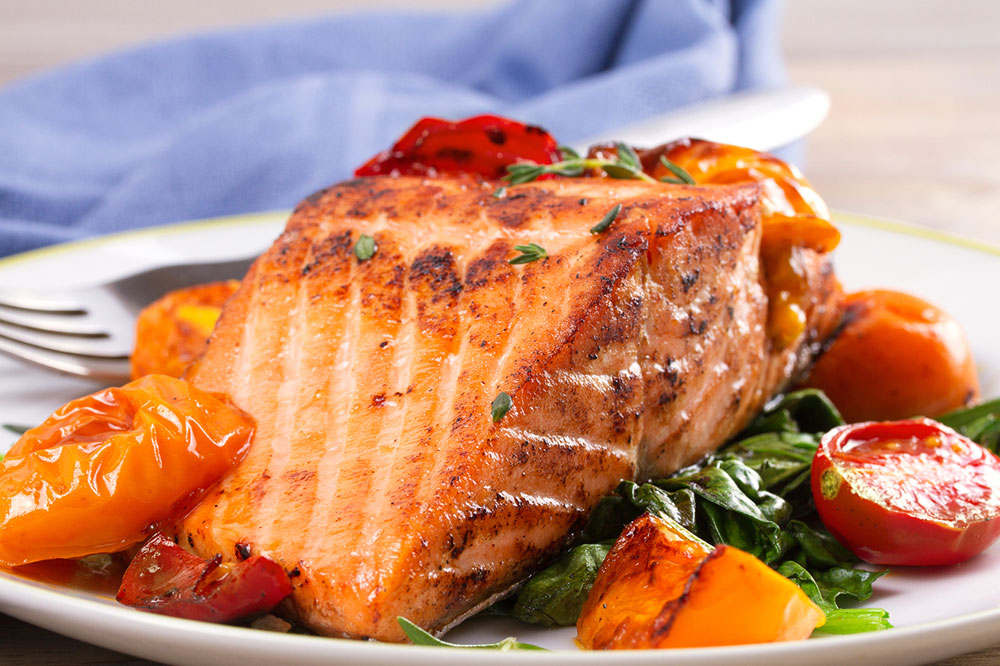Foods to avoid and foods to have for fever blisters

Cold sores, also known as fever blisters, are a viral infection caused by the herpes simplex virus (HSV). These painful blisters often appear on or around the lips and can be quite uncomfortable. For anyone dealing with a cold sore or fever blisters, it is essential to understand how to manage this condition. One key aspect of preventing blisters is avoiding certain foods that can trigger or exacerbate it. So, here are some foods to avoid and specific foods to have when dealing with them.
What are fever blisters?
Before knowing the foods to avoid fever blisters, it is first important to understand what fever blisters are. Fever blisters or cold sores are small, painful, fluid-filled blisters that commonly appear on or around the lips. They are caused by the herpes simplex virus. Once a person is infected, the virus can remain dormant in their body, occasionally reactivating and causing outbreaks of fever blisters.
Foods to avoid to keep the cold sores at bay
Arginine-rich foods
The primary food category that one must avoid in order to not trigger and prevent fever blisters is arginine-rich foods. This is because arginine is an amino acid that helps the herpes simplex virus replicate, hence, triggering cold sore outbreaks. Some common arginine-rich foods one must avoid include nuts, seeds, soy, oats, wheat, and chocolate. Apart from these, arginine is also present in protein-rich foods, such as red meat and legumes. While all of these foods are otherwise healthy, due to their high arginine content, must be avoided by those who are prone to cold sores or are dealing with it at present.
Acidic foods
Foods that contain some type of acids can irritate and trigger cold sores. These include citrus fruits, such as oranges, lemons, grapefruits, and even tomatoes. Additionally, one must also avoid tomato-based products like ketchup and pasta sauce, which are acidic and can trigger blisters. Just like some arginine-rich foods, citrus fruits, too, are otherwise healthy for the human body but must be avoided by those who are prone to cold sores. Apart from these, foods like vinegar (which contains acetic acid) and pickles are also highly acidic and can contribute to cold sore outbreaks.
Processed and sugary foods
Processed and sugary foods can weaken the immune system, which then makes it more challenging for the body to fight cold sores. Besides, high sugar intake can also lead to inflammation in the body. To prevent blister outbreaks, one must limit their consumption of sugary snacks, sodas, and processed foods. To maintain a healthy immune system, it is crucial to opt for balanced meals and unprocessed foods.
Spicy foods
Spicy foods are hot in nature and can irritate the lips, which can then trigger blisters and cold sores. To prevent their outbreak, one must avoid spicy foods such as hot peppers or dishes with high amounts of spice.
Foods to have to fight off or prevent blisters
Along with avoiding certain foods, it is also essential for one to proactively add some foods to their regimen that help in fighting or preventing fever blisters. These foods include the following:
Lysine-rich foods
While avoiding one type of amino acid (arginine) is essential to prevent cold sores, it is also essential to consume another type of amino acid for the same reason. This amino acid is lysine. While arginine can cause the replication of the herpes simplex virus, lysine does the exact opposite. Lysine can prevent the replication of the herpes simplex virus, thus preventing the outbreak of blisters. Some lysine-rich foods that one can incorporate into their routine include dairy products, especially cheese, eggs, fish, fenugreek seeds, and spirulina.
Probiotics
Probiotic bacteria, which are present in high amounts in yogurt, play a major role in improving the immune system by promoting a healthy gut. A strong immune system can then play a better role in fighting off the virus and preventing an outbreak of fever blisters. To add more probiotics into their food regimen, one can opt for plain yogurt with live active cultures.
Leafy greens
Leafy greens such as spinach and kale are highly advantageous in preventing fever blisters. This is because leafy greens are rich in antioxidants, which help prevent cellular damage and enhance the immune system. Secondly, they are rich in a B vitamin called folate, which supports the body’s natural healing process and can reduce the frequency of cold sore outbreaks. Finally, they also contain zinc, which, as per some studies, has been found to work against the herpes simplex virus, hence preventing fever blisters.
Garlic
Garlic, long revered for its culinary and health properties, also proves to be a valuable ally in the battle against fever blisters. Garlic contains a compound called diallyl trisulfide, which, as per some studies, works against the herpes simplex virus by preventing its replication. Moreover, garlic also has antibacterial, antiseptic, and antifungal properties and fights infections. It also helps in enhancing the immune system. Hence, adding garlic to meals can benefit those looking to prevent fever blisters.







